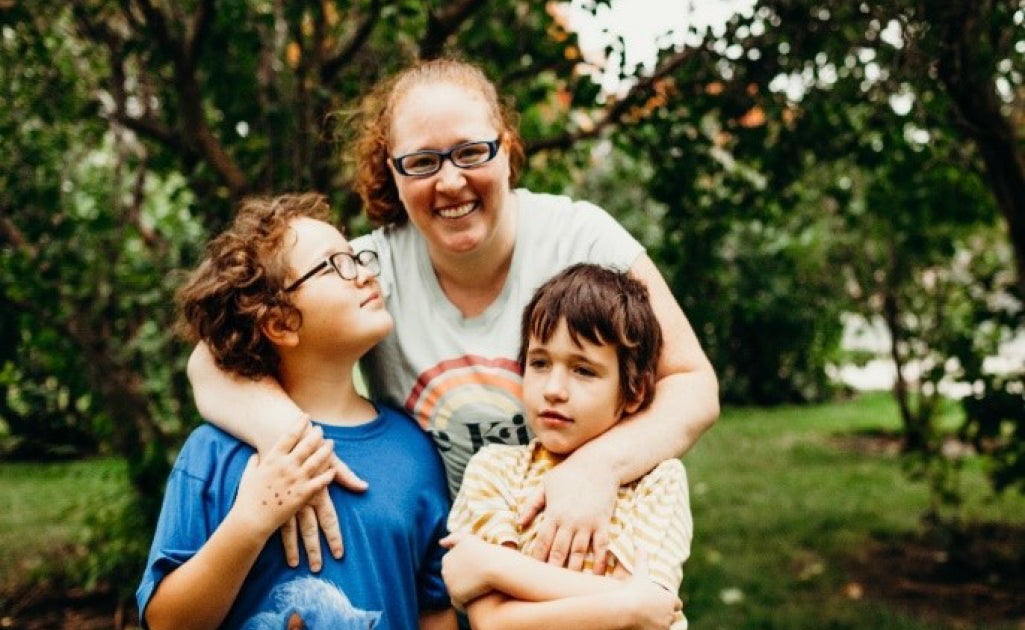
Gonzaga Family Haven welcomes first residents

A new chapter began last fall for the 73 families that will join the Gonzaga Family Haven (GFH) community in coming months, the result of hard work and collaboration between Catholic Charities Eastern Washington (CCEW) and community partners at Gonzaga University and Gonzaga Preparatory School. GFH offers a full range of supportive services on-site to help community residents overcome the traumas of intergenerational poverty, encouraging a stable environment in which local families that have experienced homelessness can build resiliency. It also provides a safe place to live and access services to improve overall wellness and stability.
Gina (pictured here) is a local Spokane mom of three who has struggled with homelessness and instability over the past two years. She had difficulty finding affordable housing in Spokane and worried how the instability was impacting her children. Since September, Gina and her family have gained stability, community and a little more certainty through the GFH housing project. “The day that we got keys to Gonzaga Family Haven was an amazing day. It was a special day. It was a very happy day,” Gina said of her experience.
The day that we got keys to Gonzaga Family Haven was an amazing day. It was a special day. It was a very happy day.
Gina
GFH is one of 29 properties operated by CCEW and the 17th tax credit project the agency has developed since 2012. In total, CCEW serves more than 2,500 people across these properties, including seniors and the disabled, children and families, single persons experiencing chronic homelessness, farmworkers and veteran families. Each and every property is designed to give residents a community in which they can build relationships and skillsets needed to live healthy, happy and stable lives while breaking up intergenerational cycles of poverty and homelessness.
To maintain the nurturing environment created in projects like Gonzaga Haven, CCEW will continue to address the need for families experiencing homelessness to acquire stable housing, food security, and behavioral health services while in transition.
For more information on the full breadth of CCEW’s programs and services, please visit www.cceasternwa.org.








